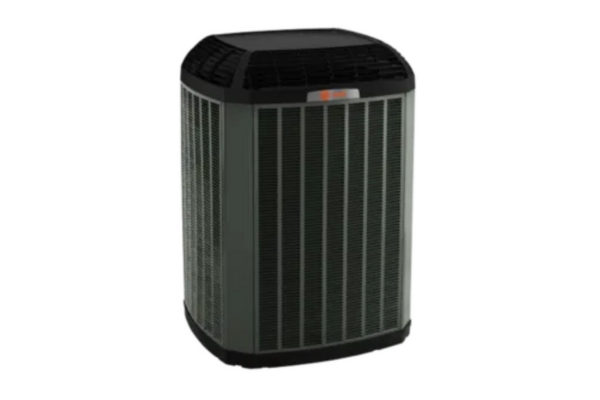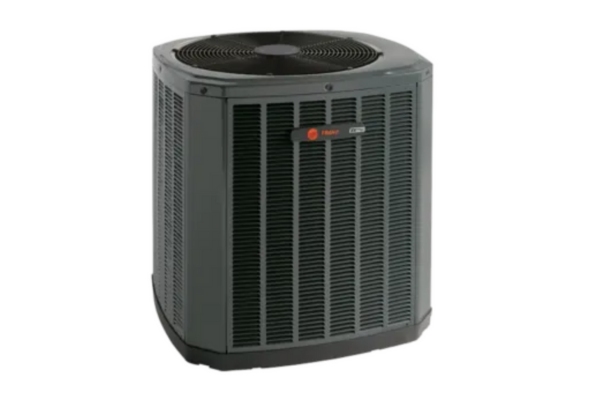Contents
- 1 Trane Air Conditioner Comparison Guide: Comfort, Cost, & Efficiency
- 2 What Air Conditioner Speed Means & Why It Matters
- 3 AC Unit Performance Comparison: Efficiency, Comfort, & Noise
- 4 Air Conditioner Cost Comparison: Upfront & Long-Term Value
- 5 How to Choose the Right Trane Cooling System for Your Home
- 6 Trane Air Conditioner Comparison: FAQs
- 6.1 What Is the Most Energy-Efficient Trane AC System?
- 6.2 Is a Two-Speed Air Conditioner Worth the Extra Cost Compared to Single-Speed?
- 6.3 Can I Use a Smart Thermostat with Trane Cooling Systems?
- 6.4 How Long Does a Trane Air Conditioning Unit Last?
- 6.5 Do Variable Speed AC Systems Work Better in Humid Climates?
- 7 Conclusion
- 8 Contact Noonan Energy for Premier HVAC Services
The type of compressor inside your air conditioner plays a major role in how consistently your home stays comfortable throughout the summer. It influences noise levels, temperature precision, and monthly energy usage.
At Noonan Energy, we install and maintain Trane air conditioners known for their reliability and advanced design. Whether you’re planning to replace an aging system or improve energy performance, knowing how these systems differ will help you make an informed decision.
This article shares a Trane air conditioner comparison, exploring the key differences between Trane’s single-speed, two-speed, and variable-speed air conditioning systems. You’ll discover how each one operates, how efficient they are, and which option best suits your home and budget.
Discover the Right Cooling System for Your Home: With help from Noonan Energy, explore efficient, reliable AC options tailored to your comfort. Contact us to get started.
Trane Air Conditioner Comparison Guide: Comfort, Cost, & Efficiency

Each Trane air conditioner operates differently in terms of cooling precision, energy usage, and overall comfort. Recognizing these differences will help you select the most suitable system for your home and budget.
Start Your AC Upgrade with Confidence: Trust Noonan Energy for expert advice and professional installation services. Call now to improve your home’s cooling performance.
What Air Conditioner Speed Means & Why It Matters
Air conditioner speed refers to how the compressor and fan operate during each cooling cycle. Systems are designed to run at a fixed, two-stage, or variable output.
These AC compressor speed types determine how effectively the unit responds to indoor temperature changes. A single-speed system runs at full capacity until the desired temperature is reached, while two-speed and variable-speed models offer more precise control.
Understanding how AC speed affects cooling helps explain why variable systems often deliver quieter operation, improved humidity control, and greater energy efficiency. When comparing air conditioner speeds based on their performance, speed plays a crucial role in overall comfort and long-term operating costs.
Trane Single-Speed AC Units

Trane single-stage AC systems operate at full power every time they run. Once the thermostat detects a temperature rise, the compressor turns on at 100 percent capacity and shuts off when the target temperature is reached. This basic Trane AC setup offers straightforward performance with a lower upfront cost and minimal complexity.
However, these units are less efficient compared to the multi-speed units. Also, single-speed air conditioning systems are louder and can lead to inconsistent temperatures during extreme heat.
As a budget air conditioner option, a Trane single-stage AC is best suited for small homes or regions with mild summers. Popular models in this category include the Trane XR13 and XR14.
AC Services Backed by Expertise: From system selection to full installation, Noonan Energy delivers dependable air conditioning solutions. Contact us today.
Trane Two-Speed Air Conditioning Systems

Trane two-stage AC systems operate at either a low or high capacity, adjusting based on your home’s cooling needs. Most of the time, the system runs at low speed to maintain consistent comfort, switching to high speed during hotter conditions or when a rapid temperature drop is needed.
This dual-speed functionality offers better energy efficiency, quieter performance, and improved temperature control compared to single-speed units. As a mid-range air conditioner, a Trane two-stage air conditioner provides a strong balance between performance and cost.
Popular models include the Trane XR16 and XL16i, ideal for homes in areas with moderate summer heat. These systems work well with advanced thermostats and are a practical choice for those seeking reliable, dual-speed cooling.
Upgrade to Efficient Cooling You Can Count On: Noonan Energy helps you choose the ideal system for long-term comfort and energy savings. Book your consultation now.
Trane Variable Speed Air Conditioners
Trane variable speed AC systems deliver precise cooling by adjusting compressor output in small, continuous increments. Instead of turning on and off frequently, these high-efficiency air conditioners run at lower speeds for longer to maintain a stable indoor climate. This results in exceptional temperature and humidity control, minimal noise, and energy savings that can significantly reduce utility costs over time.
Trane variable-speed air conditioning units often pair with communicating thermostats for optimal performance and remote system monitoring. Though they come with a higher upfront cost, models like the Trane XV18 and XV20i offer advanced climate control and long-term value for homeowners seeking premium comfort.
AC Unit Performance Comparison: Efficiency, Comfort, & Noise
Each Trane air conditioning system’s speed affects how efficiently the unit cools your home, how evenly it maintains temperature, and how quietly it runs. These performance factors are key to daily comfort and energy use.
Air Conditioner Efficiency
Variable speed units are the most energy efficient, using less power over time. Two-speed systems offer moderate efficiency, while single-speed models consume the most energy due to frequent on-off cycling.
Reliable Comfort Throughout the Season: Stay cool with high-efficiency AC systems and expert service from Noonan Energy. Call today to learn more.
Home Comfort Control

Variable speed systems provide the most consistent temperature and humidity control. Two-speed models offer better comfort than single-speed units, which can lead to uneven cooling and humidity fluctuations.
AC Unit Noise Levels
Variable speed systems are the quietest, operating at low speeds for most of the day. Two-speed units produce less noise than single-speed models, which tend to be the loudest due to full-capacity operation.
Long-Lasting Cooling You Can Trust: Choose Noonan Energy for expert AC installation and dependable service designed to meet your comfort needs. Call now.
Run Time and Indoor Air Quality

Variable speed units run longer at lower outputs, improving air circulation and filtration. Two-speed systems maintain better airflow than single-speed models, which operate in short, intense cycles with limited air quality benefits.
Why It Matters
The day-to-day performance of your air conditioner impacts more than comfort. A quiet, high-efficiency air conditioner can minimize energy costs and create a more stable indoor environment. Understanding Trane AC performance comparison helps you select an energy-efficient cooling system that delivers long-term value.
Get Expert AC Guidance for Your Home: Count on Noonan Energy for clear recommendations and trusted cooling system support. Reach out to schedule your appointment.
Air Conditioner Cost Comparison: Upfront & Long-Term Value
Trane air conditioner prices increase with system sophistication, but so do energy savings and comfort. Single-speed systems have the lowest upfront cost, making them ideal for budget-conscious buyers. However, they use more energy over time, resulting in increased utility bills. Two-speed systems offer a mid-range solution, striking a balance between AC installation cost and energy efficiency. Variable speed units are the most expensive to install but provide the greatest long-term savings due to their superior efficiency and consistent performance.
This air conditioner cost comparison helps homeowners weigh immediate costs against long-term benefits. While single-speed models may be cheaper initially, their higher operating costs reduce value over time. Variable-speed systems deliver the highest Trane cooling system value, combining energy savings, comfort, and quieter operation. Understanding these cost differences enables you to make more informed investments that support your budget and comfort goals.
How to Choose the Right Trane Cooling System for Your Home

Choosing the right Trane cooling system involves more than just picking a model. It requires evaluating your home’s square footage, insulation, climate, and comfort needs. Larger homes or those in hotter regions may benefit from variable-speed systems, while smaller homes in milder climates may be well-served by two-speed or single-speed options.
Consider how much noise you can tolerate, what your budget allows, and whether rebates are available. It’s also essential to factor in your existing ductwork and thermostat compatibility.
Following a detailed Trane AC selection guide ensures you choose the best AC system for efficient performance without paying for unnecessary features. Proper air conditioner sizing and speed selection lead to greater comfort, lower energy bills, and longer system life.
Energy-Efficient Cooling Starts with the Right Fit: Let Noonan Energy match your home with a Trane system built for performance and value. Contact us today.
Trane Air Conditioner Comparison: FAQs

What Is the Most Energy-Efficient Trane AC System?
Trane’s variable-speed models, such as the XV18 and XV20i, are the most energy-efficient systems available. With SEER ratings exceeding 20, these units adjust cooling output in real time based on your home’s needs. This reduces energy consumption, eliminates temperature swings, and allows the system to maintain ideal comfort levels without running at full capacity all the time.
Is a Two-Speed Air Conditioner Worth the Extra Cost Compared to Single-Speed?
Yes. A two-speed AC offers better comfort, energy savings, and quieter operation than a single-speed system. It can run at a lower speed most of the time, which reduces wear and tear, minimizes temperature fluctuations, and improves overall efficiency. For many homeowners, it strikes the ideal balance between cost and performance.
Can I Use a Smart Thermostat with Trane Cooling Systems?
Most Trane systems are compatible with smart thermostats, including third-party models like Ecobee or Nest. However, variable speed systems work best with Trane’s ComfortLink II communicating thermostat, which unlocks advanced features such as system diagnostics, precise control, and performance optimization tailored to your home.
Better Comfort, Smarter Cooling: Trust Noonan Energy to enhance your indoor climate with professional air conditioning solutions. Book your consultation today.
How Long Does a Trane Air Conditioning Unit Last?
With proper installation and regular upkeep, a Trane air conditioner usually lasts between 15 and 20 years. Higher-end models with variable-speed technology often have longer lifespans due to smoother operation and reduced stress on components. Tune-ups and timely filter changes can help extend the life of any Trane system.
Do Variable Speed AC Systems Work Better in Humid Climates?
Yes. Variable speed systems are especially effective in humid environments because they run at lower speeds for longer periods. This extended operation improves moisture removal from the air, keeping your home drier and more comfortable while reducing the risk of mold and musty odors. This makes them an ideal choice for regions with hot, humid summers.
Conclusion
Trane offers a range of air conditioning systems tailored to suit various budgets, comfort preferences, and energy objectives. Single-speed units offer reliable, affordable cooling but operate with less efficiency. Two-speed systems provide improved performance and energy savings at a moderate cost. For homeowners seeking advanced comfort, quiet operation, and maximum efficiency, variable-speed models deliver the greatest long-term value.
Choosing the right Trane system depends on your home’s size, climate, and personal comfort goals. With the proper selection, you can enjoy reduced energy bills, consistent indoor temperatures, and a more comfortable living environment year-round.
Unsure Which Trane System Fits Your Needs? Let Noonan Energy guide you toward the right air conditioner for your home and budget. Schedule your expert consultation today.
Contact Noonan Energy for Premier HVAC Services
At Noonan Energy, we provide top-tier heating and cooling services in Massachusetts and Connecticut. Our company is staffed by certified HVAC technicians who excel in heating and cooling tune-ups, repairs, installations, replacements, and more. Our technicians are not only highly trained but also bring a wealth of knowledge and experience to ensure your HVAC system is serviced with precision.
We pride ourselves on offering the most competitive rates for heating and cooling services in Massachusetts and Connecticut. Our maintenance services are designed to enhance your comfort and increase energy efficiency, ultimately reducing your heating and cooling expenses. Whether you need a repair or a complete system replacement, Noonan Energy will guide you to the best solutions that fit your needs and budget. We stand behind our work with a robust satisfaction guarantee.
Call Noonan Energy today to schedule your service appointment and receive an in-home consultation. Call now!
Click here to contact us today or give us a call at (800) 343-8829 if you have any questions. Click the link to view our service area.

Related Articles:
- When to Upgrade To A New Trane HVAC System
- Trane Premier vs Priority vs Choice Furnaces: Review & Buying Guide
- AC Installation South Hadley, Massachusetts
- Heating & Cooling Installation Wilbraham, Massachusetts
- Energy Savings With Modern Air Conditioners
- Ductless Heat Pumps vs Ductless Air Conditioners: Which One Fits Your Needs?

